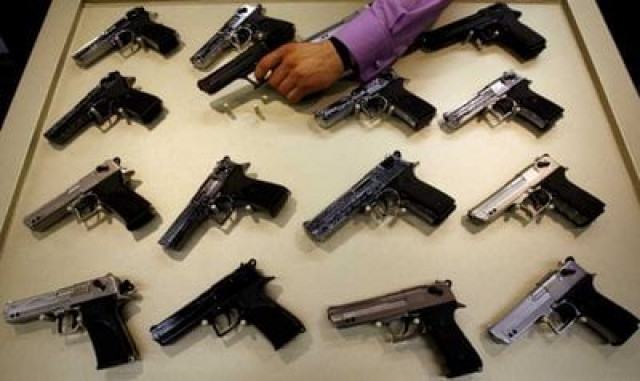States failing to control transport of arms: Amnesty
The failure of states to control the transport of weapons around the world is increasing the risk of human rights violations.

States failing to control transport of arms: Amnesty
Transport companies registered in Britain, France, China, Russia and the US are able to move arms and munitions to countries where they could be used to commit serious violations of humanitarian law, the rights group said.
It alleged deliveries of cluster munitions on ships registered in Britain and managed by British and German companies were transported to Pakistan between March 2008 and February this year for use by the country's army. The shipments took place despite commitments by Britain and Germany to comprehensively ban the transfer and use of cluster munitions, Amnesty said.
The report, "Deadly Movements: Arms Transportation Controls in the Arms Trade Treaty", was published to coincide with the resumption of talks at the United Nations on a proposed international treaty on the arms trade.
In another example, Amnesty said a consignment of machine gun and anti-aircraft gun parts from Bulgaria were flown to Paris, Nairobi and Kigali, and ended up being used in fighting in the Democratic Republic of Congo (DRC).
More than 220,000 people were displaced and serious rights violations were committed in DRC, said Amnesty, adding that the Bulgarian, French and Kenyan governments had all failed to stop the transit of the weapons.
"Lax controls on arms shippers and flyers who increasingly move conventional arms around the world are not confined to jurisdictions with weak arms export and import laws," said Brian Wood from the London-based rights organisation. Amnesty urged the UN to consider the role of "transporters and other intermediaries in arms supply chains", instead of only focusing on the export and import licensing procedures of states.



















COMMENTS
Comments are moderated and generally will be posted if they are on-topic and not abusive.
For more information, please see our Comments FAQ